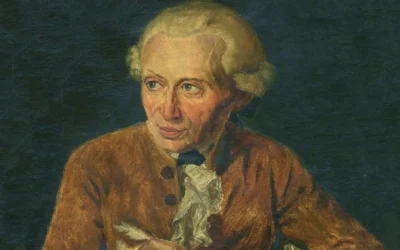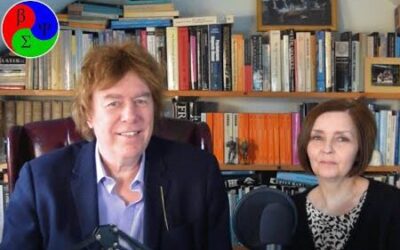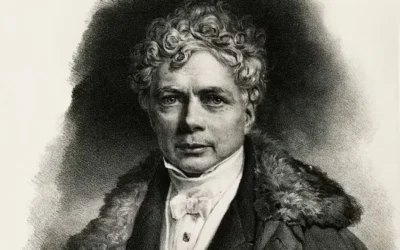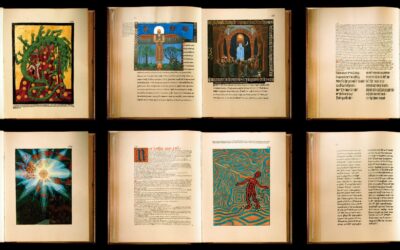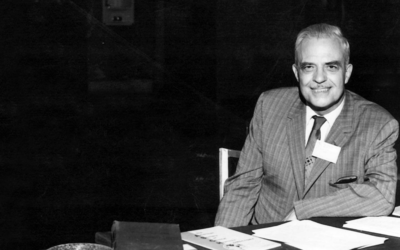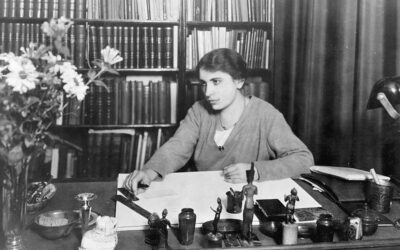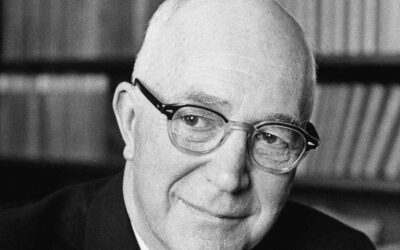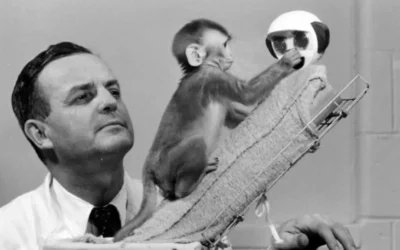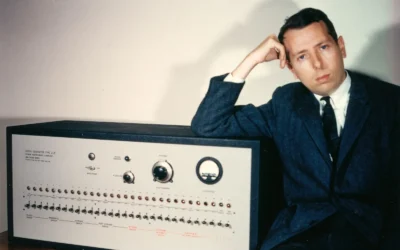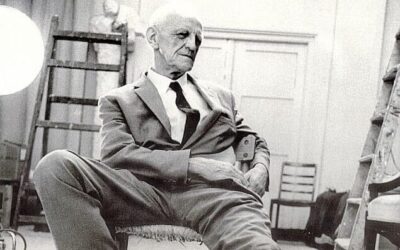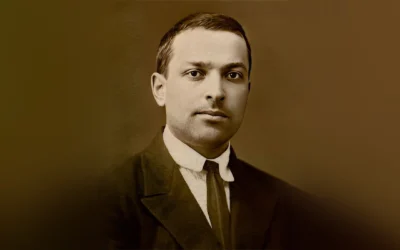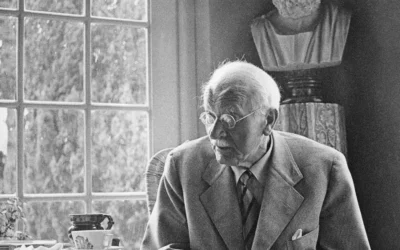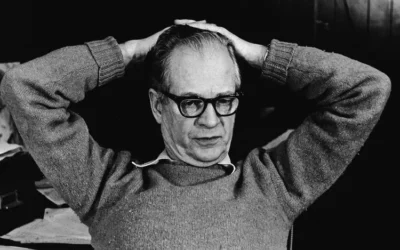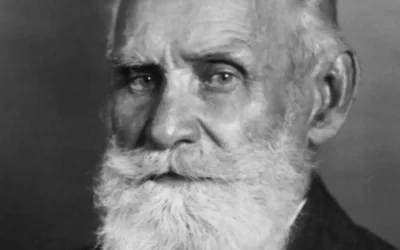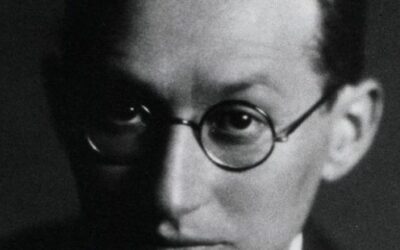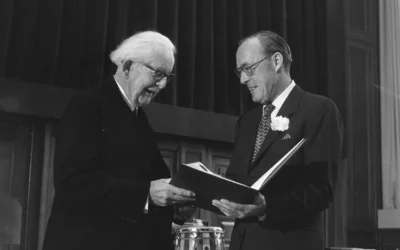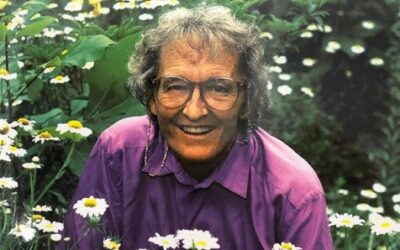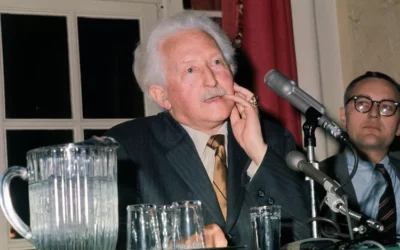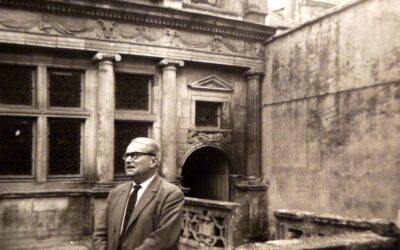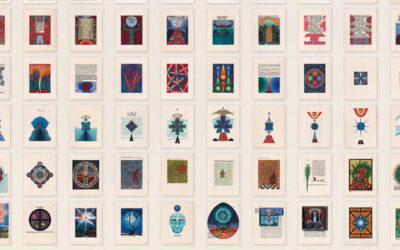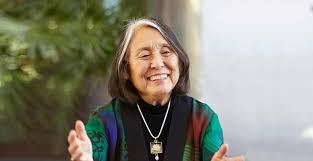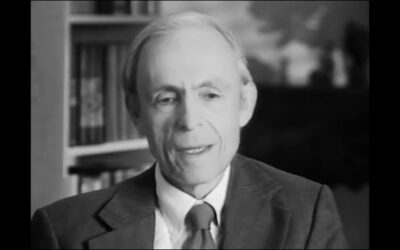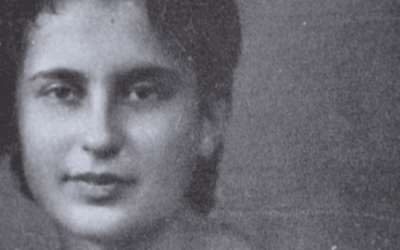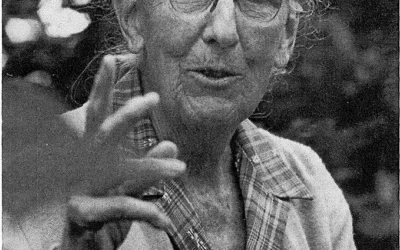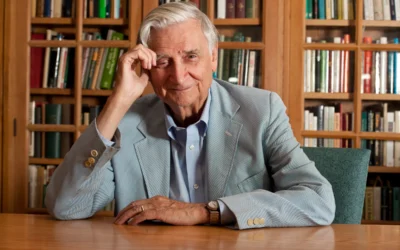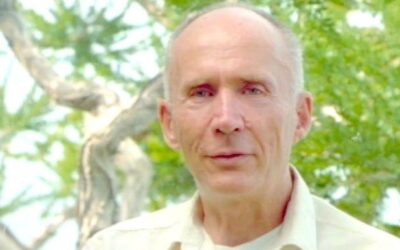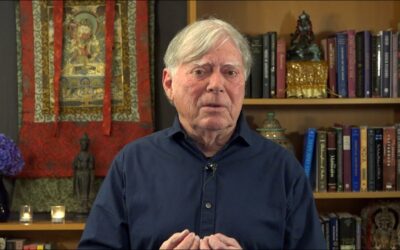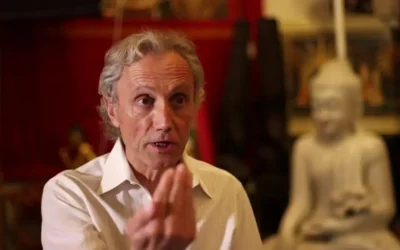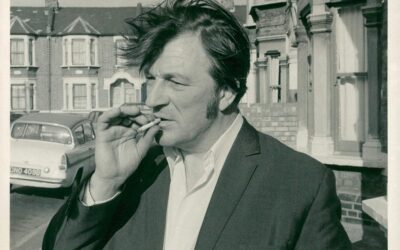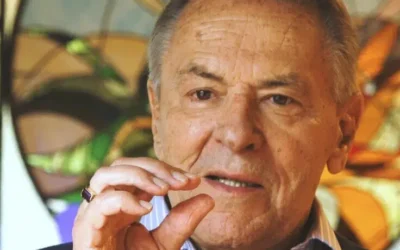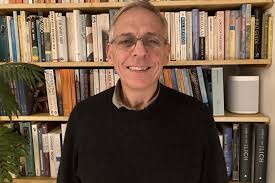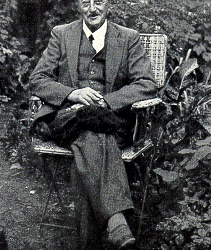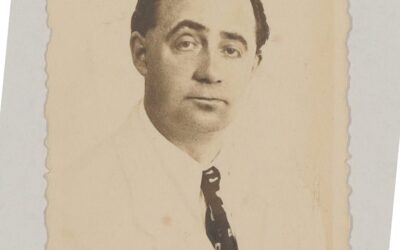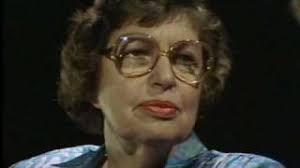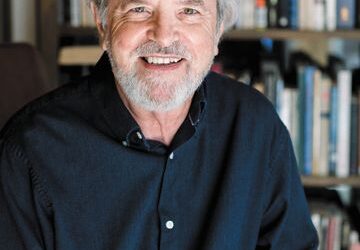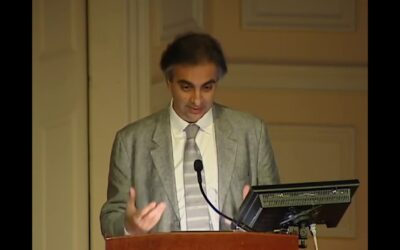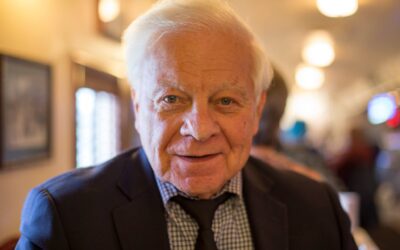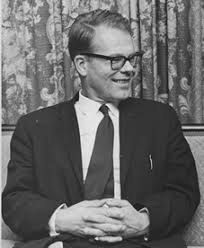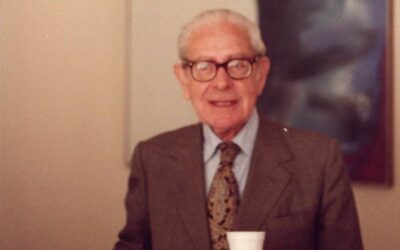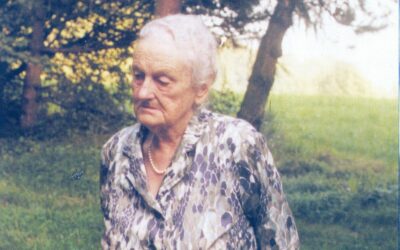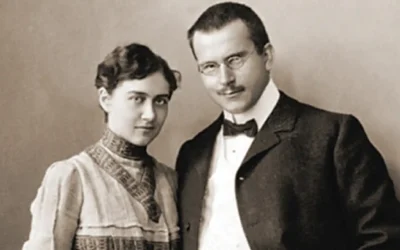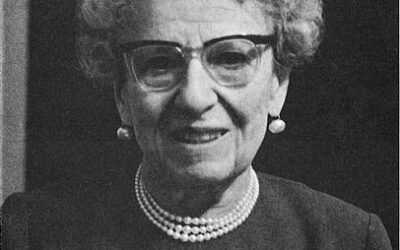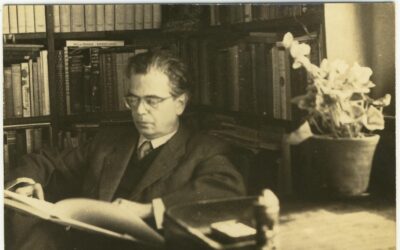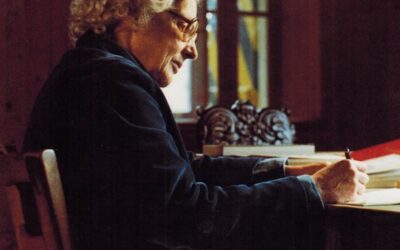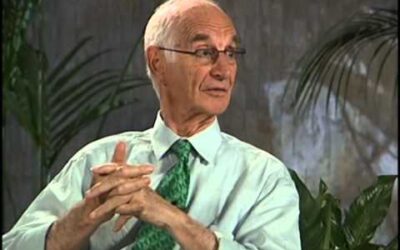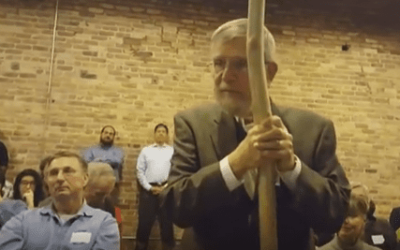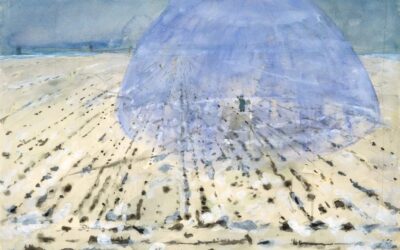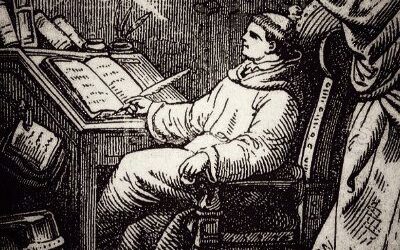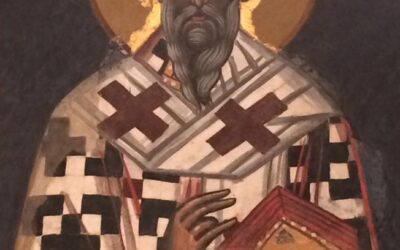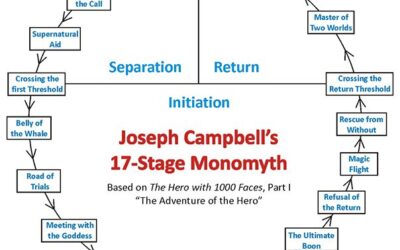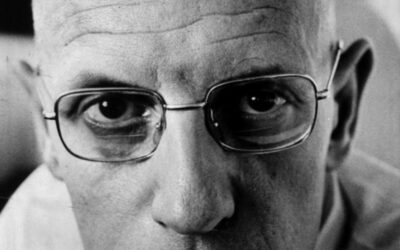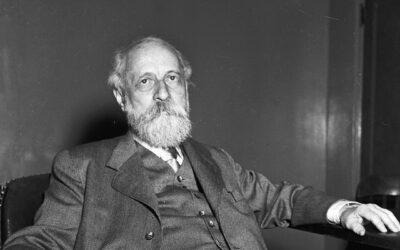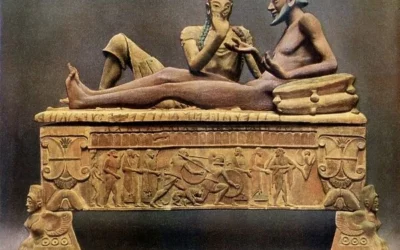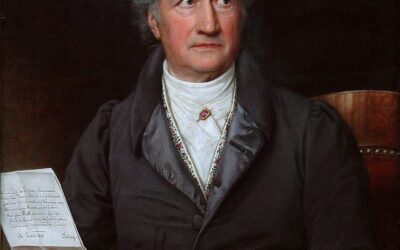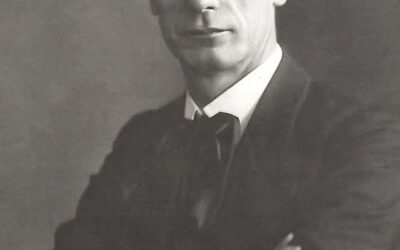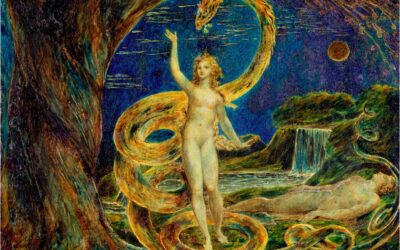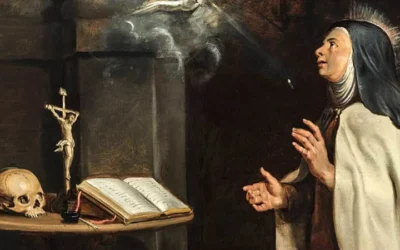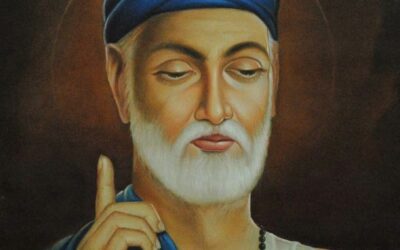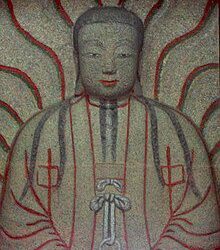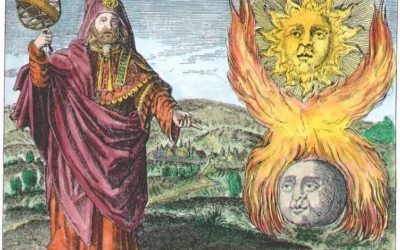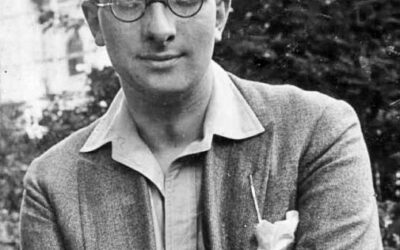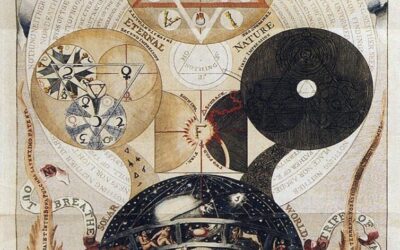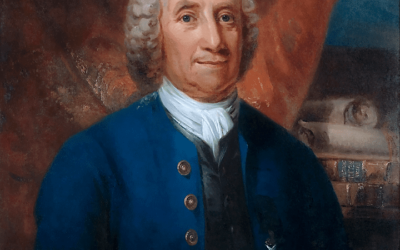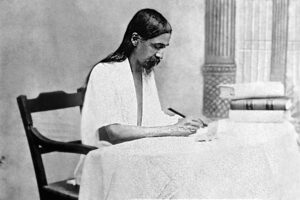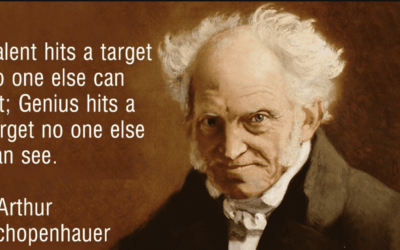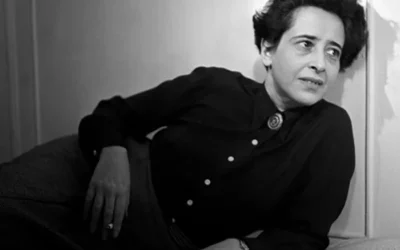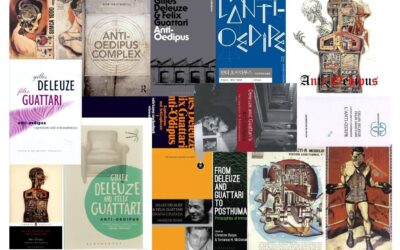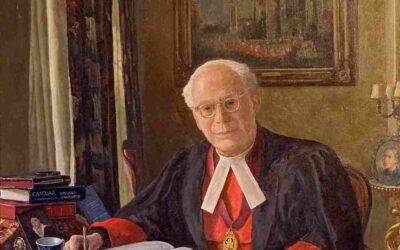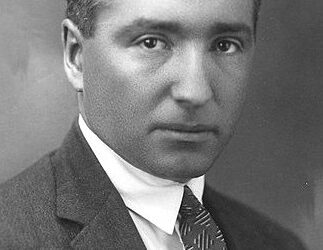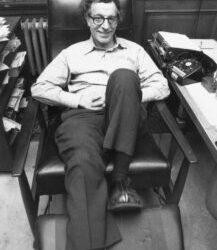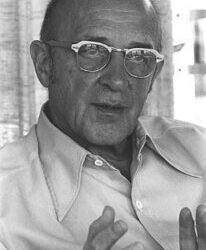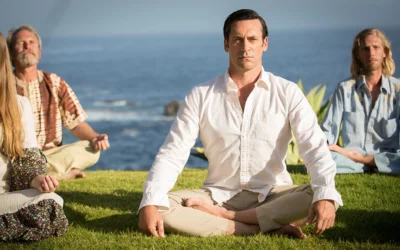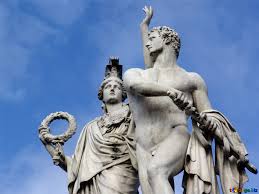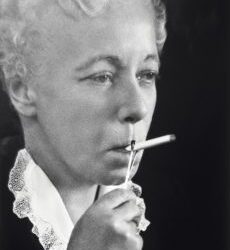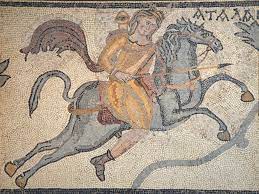Who was Kant? Immanuel Kant (1724-1804), the renowned German philosopher, left an indelible mark on the development of psychology and psychotherapy. His groundbreaking ideas about the nature of the mind, morality, and the structure of human experience continue to shape our understanding of mental health and inform therapeutic approaches to this day. In this essay, we will delve into Kant's key philosophical contributions, explore their influence on the work of Carl Jung and other psychological pioneers, and...
Steven Richards: Integrating Jung with Spiritual Traditions for Transformation
Who is Steven Richards? Introduction: Steven Richards' Integral Approach Steven Richards is an influential contemporary Jungian analyst and author who has made significant contributions to the integration of Jungian psychology with Eastern and Western spiritual traditions. His work builds upon the foundations laid by Carl Jung, expanding the scope and applications of analytical psychology for personal and collective transformation. Richards' integral approach seeks to bridge the insights of depth psychology with...
The Profound Influence of Schelling’s Conceptualization of Trauma on Psychology and Psychotherapy
Who was Friedrich Wilhelm Joseph Schelling? Friedrich Wilhelm Joseph Schelling (1775-1854), a German philosopher, had a significant impact on the development of psychology and psychotherapy, especially in understanding trauma. His ideas about the psyche, the unconscious, and the effects of traumatic experiences continue to resonate with many contemporary psychological theories and therapeutic modalities. In this essay, we will explore Schelling's conceptualization of trauma, its influence on depth psychology, and...
Carl Jung’s Major Influences and Philosophy
Who were the Major Influences on Carl Jung? Read More on Jung here: Carl Jung's Major Influences Jungian Analysis Archetypes Jung’s Method Jungian Thought 1. Jung's Lifelong Journey into the Psychology of Religion Read this article as a pdf. 1.1 Index of Influences Mentioned in the Paper Gnosticism influenced Jung through its emphasis on direct, experiential knowledge (gnosis) of the divine and the concept of the fallen, fragmented God-image. This led Jung to develop his understanding of the individuation process...
Milton H. Erickson: Revolutionary Psychotherapist and Hypnosis Pioneer
Who Was Milton Erickson? 1. The Groundbreaking Legacy of Milton H. Erickson in Psychotherapy Milton H. Erickson (1901-1980) was one of the most innovative and influential psychotherapists of the 20th century. Best known for his groundbreaking work in hypnosis and strategic psychotherapy, Erickson developed a highly creative, intuitive and individualized approach that departed radically from the dominant psychoanalytic and behavioral models of his time. His unique style of hypnosis, characterized by indirect...
Anna Freud: Continuing the Legacy
Who was Anna Freud? Anna Freud (1895-1982) was an Austrian-British psychoanalyst and a pioneer in the field of child psychoanalysis. As the youngest daughter of Sigmund Freud, the founder of psychoanalysis, Anna Freud was immersed in the world of psychoanalytic thought from an early age. She made significant contributions to psychoanalytic theory and practice, particularly in the areas of child development, ego psychology, and defense mechanisms. Her work had a profound impact on the understanding and treatment...
Gordon Alport: The Science of Personality
Who was Gordon Alport? Gordon Allport (1897-1967) was a pioneering American psychologist who made significant contributions to the study of personality, social psychology, and the psychology of religion. He is best known for his trait theory of personality, which emphasizes the importance of individual differences and the unique patterns of traits that define each person's personality. Allport's work helped to establish personality psychology as a major field of study and influenced generations of researchers and...
Mary Ainsworth: The Strange SItuation
Who is Mary Ainsworth? Mary Ainsworth (1913-1999) was an influential American-Canadian developmental psychologist best known for her groundbreaking work in attachment theory. Her research on mother-infant interactions and the development of the Strange Situation procedure revolutionized our understanding of the nature and importance of early attachment relationships. Ainsworth's work not only provided empirical support for John Bowlby's theory of attachment but also expanded and refined the theory, making it one...
Harry Harlow: The Science of Attachment
Who was Harry Harlow? Harry Frederick Harlow (1905-1981) was a groundbreaking American psychologist best known for his seminal work on affection, attachment, and social behavior in rhesus monkeys. His pioneering experiments challenged prevailing theories of the time and reshaped our understanding of the nature and importance of love and emotional bonds in early development. Despite the controversial nature of some of his work, Harlow's findings have had far-reaching implications for fields ranging from child...
John Watson: The Founder of Behavioral Psychology
Who Was John Watson John Broadus Watson (1878-1958) was an influential American psychologist who is widely regarded as the founder of behaviorism, a school of thought that dominated psychology for much of the 20th century. Watson's emphasis on observable behavior and environmental determinants of behavior challenged the prevailing focus on introspection and mentalism in psychology and had far-reaching implications for fields ranging from education to advertising. 1. Early Life and Academic Career 1.1. Childhood...
Stanley Milgram: Shocking Experiments
Who was Stanley Milgram? Stanley Milgram stands as one of the most influential and controversial figures in the history of social psychology. His groundbreaking research on obedience to authority not only revolutionized our understanding of human behavior but also raised profound ethical questions about the nature of scientific inquiry. Despite a career cut short by his untimely death, Milgram's work continues to shape discussions in psychology, ethics, and social science research methodology. Milgram's obedience...
Donald Winnicott: Post Freudian Progress
Who was Donald Winnicott? Donald Woods Winnicott (1896-1971) stands as one of the most influential figures in the history of psychoanalysis and developmental psychology. His groundbreaking theories on the mother-infant relationship, transitional objects, and the true and false self have had a profound impact on our understanding of human development and the origins of emotional well-being. Winnicott's emphasis on the importance of the early caregiving environment in shaping the developing self has influenced...
The Significance of Lev Vygotsky in Psychology and Education
Who was Lev Semyonovich? Lev Semyonovich Vygotsky (1896-1934) stands as one of the most influential figures in the history of developmental psychology and educational theory. Despite his tragically short life, Vygotsky's ideas have had a profound and lasting impact on our understanding of cognitive development, learning, and the relationship between thought and language. His sociocultural theory of cognitive development challenged the dominant paradigms of his time and continues to shape research and practice in...
Carl Jung: Explorer of the Soul A Comprehensive Examination of His Life, Work, and Legacy
Read More on Jung here: Jungian Analysis Archetypes Jung’s Method Jungian Thought 1 Who was Carl Jung? 1.1. The Significance of Jung in Psychology and Beyond Carl Gustav Jung (1875-1961) stands as one of the most influential and controversial figures in the history of psychology. As a pioneer of depth psychology and the founder of analytical psychology, Jung's ideas have had a profound impact not only within the field of psychology but also across various domains of human thought and creativity, including...
B.F. Skinner and Operant Conditioning
Who was B.F. Skinner? B.F. Skinner was one of the most influential and controversial psychologists of the 20th century. As the father of radical behaviorism, he revolutionized our understanding of learning, behavior, and conditioning. His pioneering work in operant conditioning, schedules of reinforcement, behavioral shaping, and the experimental analysis of behavior had a profound impact not only on psychology, but fields as diverse as education, child-rearing, psychotherapy, behavioral economics, and even...
Ivan Pavlov: Pioneer of Classical Conditioning
Who was Ivan Pavlov? Ivan Petrovich Pavlov (1849-1936) was a Russian physiologist and psychologist who is widely considered one of the most influential figures in the history of psychology. He is best known for his groundbreaking work on classical conditioning, a learning process in which a neutral stimulus becomes associated with a biologically significant stimulus to elicit a conditioned response. Pavlov's meticulous research on the digestive system of dogs led to profound insights into the nature of learning...
Kurt Lewin: Life, Work and Legacy
Who Was Kurt Lewin? Kurt Lewin (1890-1947): Influential Psychologist and Social Scientist Kurt Lewin (1890-1947) was a pivotal figure in 20th-century psychology, renowned for his groundbreaking contributions to social psychology, organizational behavior, and group dynamics. His work not only shaped theoretical frameworks but also pioneered practical applications, emphasizing the interaction between individuals and their environments. Biographical Timeline 1890: Born in Mogilno, Prussia (now Poland). 1914: Earned...
Jean Piaget: The Architect of Cognitive Development
Who was Jean Piaget? 1. Overview Jean Piaget (1896-1980) was a Swiss psychologist and epistemologist who revolutionized our understanding of cognitive development in children. His groundbreaking work laid the foundation for the field of genetic epistemology and profoundly influenced educational theory and practice worldwide. Piaget's theory of cognitive development, with its emphasis on how children actively construct their understanding of the world, remains one of the most influential frameworks in...
Elisabeth Kübler-Ross: Pioneer of Death and Dying Studies
Who was Elisabeth Kübler-Ross? Elisabeth Kübler-Ross (1926-2004) was a Swiss-American psychiatrist who transformed the way society understands and approaches death, dying, and bereavement. Her groundbreaking work in thanatology - the study of death-related practices and experiences - has provided comfort and clarity to millions of individuals facing their own mortality or grieving the loss of loved ones. Kübler-Ross's famous "Five Stages of Grief" model and her compassionate, patient-centered approach to...
Erik Erikson: Life, Theory, and Legacy in Developmental Psychology
Who was Milton Erikson? Early Life and Education Erik Erikson was born on June 15, 1902, in Frankfurt, Germany to Karla Abrahamsen, a young Jewish woman. The identity of Erikson's biological father was unknown, as Karla had become pregnant before her marriage. When Erikson was three, his mother married Dr. Theodor Homburger, a Jewish pediatrician, who raised Erikson as his own son. The family kept the circumstances of Erikson's birth a secret, which contributed to Erikson's later interest in identity development....
Henry Corbin: Visionary of the Imaginal Realm
Who was Henry Corbin? Henry Corbin (1903-1978) was a groundbreaking French philosopher, theologian, and Islamicist whose visionary work unveiled the power of the imaginal realm. Corbin's unique approach synthesized Islamic mysticism, Western philosophy, Jungian psychology, and the perennial wisdom traditions to illumine the transformative potency of creative imagination. His penetrating insights into the mediating realm between matter and spirit continue to inspire seekers across disciplines, from religious...
Understanding Carl Jung’s The Red Book
Carl Jung's The Red Book: A Journey into the Collective Unconscious Carl Gustav Jung (1875-1961), the renowned Swiss psychiatrist and founder of analytical psychology, left an indelible mark on the field of depth psychology with his groundbreaking concepts of archetypes, the collective unconscious, and the process of individuation. These revolutionary ideas emerged not only from Jung's extensive clinical observations and theoretical studies but also from a profound personal journey of psychological transformation...
Jean Shinoda Bolen, M.D.: Mapping the Deep Feminine Psyche
Who is Jean Shinoda Bolen? Jean Shinoda Bolen, M.D. (1936-present) is a acclaimed psychiatrist, Jungian analyst, and author who has made groundbreaking contributions to the fields of depth psychology, women's spirituality, and archetypal studies. Drawing upon her unique blend of medical training, Jungian scholarship, and feminist vision, Bolen's work explores the centrality of the sacred feminine to psychological development and cultural transformation. Through her bestselling books and international...
The Archetypal Psychology of Edward Edinger: Illuminating the Process of Individuation
Who Was Edward Edinger? Edward F. Edinger (1922-1998) was a prominent American psychiatrist, analyst, and author who made significant contributions to the field of analytical psychology. As one of the leading interpreters of Carl Jung's work in the United States, Edinger devoted his career to elucidating the process of individuation and exploring the archetypal dimensions of the psyche. His innovative theories and lucid writings have had a profound impact on the development of Jungian psychology and its...
The Psychology of Selves: The Pioneering Work of Hal and Sidra Stone
Who were Sidra and Hal Stone? 1.1. The Stones' Journey from Traditional Analysis to Voice Dialogue Hal and Sidra Stone, the creators of the innovative therapeutic modality known as Voice Dialogue, began their careers as traditional Jungian analysts. However, over time they grew discontent with what they perceived as the dryness and authoritarian aspects of classical analysis. They felt that the traditional model placed too much power in the hands of the analyst, fostering a hierarchical dynamic that could hinder...
Sabina Spielrein: Individuation through Paradoxes
Who was Sabina Spielrein? Sabina Spielrein (1885-1942) was a pioneering Russian psychoanalyst whose innovative theories of sexuality, destruction, and transformation shaped the early development of psychoanalysis. Over a brief but brilliant career cut short by the Holocaust, Spielrein made groundbreaking contributions to the understanding of the death instinct, child psychology, and the creative interplay of opposites in the human psyche. At the heart of her work was a fascination with the paradoxical...
Esther Harding and the Reclamation of the Feminine in Depth Psychology
Who was Esther Harding? "The recovery of the feminine, she suggests, is essential not only for women's psychological and spiritual thriving but also for the healing of the world." Esther Harding (1888-1971) was a pioneering American Jungian analyst, author, and feminist known for her groundbreaking contributions to the understanding of feminine psychology and spirituality. As one of the first generation of Jungian thinkers, Harding played a crucial role in introducing Jung's ideas to the English-speaking world...
The Ecology of Enchantment: David Abram’s Earth-Centered Philosophy
Who is David Abram? "For the first time in history, the human species has seen fit to wander into the realm of the gods, and we have no clue what we are doing here." David Abram (1957-) is a groundbreaking American ecologist, philosopher, and cultural theorist whose work has pioneered a new understanding of the reciprocal relationship between humans and the natural world. Drawing upon his studies of indigenous cultures, his immersion in the natural world, and his creative engagement with the Western philosophical...
Bridging the Two Cultures: Edward O. Wilson’s Legacy in Science and the Humanities
Who was Edward O Wilson? Edward O. Wilson (1929-2021) was a pioneering American biologist, naturalist, and writer who made seminal contributions to the fields of ecology, evolution, and sociobiology. As one of the most influential scientists of the late 20th century, Wilson helped to transform our understanding of the natural world and the complex relationships between organisms and their environments. Over his long and prolific career, he authored over 30 books and hundreds of scientific papers, earning numerous...
Sean Kane: Illuminating the Wisdom of Myth, Nature, and the Human Experience
Who is Sean Kane? Sean Kane is a respected storyteller, wilderness guide, and author whose work explores the profound connections between myth, ritual, wilderness, and the human experience. Through his books, workshops, and expeditions, Kane has illuminated the transformative power of nature and the importance of mythic narratives in shaping our understanding of ourselves and the world around us. Born in Toronto, Canada, Kane grew up immersed in the rich oral traditions of his Irish and Scottish ancestors. As a...
Robert A Johnson: Healing Through Mythopoetics
Who was Robert A Johnson? Robert A. Johnson (1921-2018) was a renowned American Jungian analyst, lecturer and author known for his accessible and practical interpretations of Jungian concepts for a general audience. Over his long career, Johnson published a number of influential books that distilled key ideas from Jungian depth psychology and applied them to the challenges of everyday life and spiritual growth. Johnson had a gift for expressing complex psychological ideas in simple, relatable terms through vivid...
Michael Meade: Mythopoetic Wisdom for a Troubled World
Michael Meade: Mythopoetic Wisdom for a Troubled World Who is Michael Meade? In a time of global crisis and cultural upheaval, the work of Michael Meade offers a beacon of hope and renewal. As a mythologist, storyteller, and scholar, Meade has spent decades exploring the transformative power of myth, imagination, and the poetic traditions of the world's cultures. His unique vision weaves together insights from depth psychology, anthropology, and spirituality to reveal the hidden wisdom and regenerative potential...
Richard Tarnas: Cultural History Through Astrology
Who is Richard Tarnas? Richard Tarnas (b. 1950) is a pioneering American cultural historian and philosopher whose innovative theories of human history, consciousness, and cosmology have transformed the study of culture, psychology, and spirituality. Over a prolific career spanning five decades, Tarnas has developed a rich body of concepts and frameworks for interpreting the evolution of human thought and experience, from the ancient roots of the Western mind to the birth of a new worldview in our postmodern era....
Marion Woodman: Pioneering the Conscious Feminine and the Embodied Soul
Who was Marion Woodman? Marion Woodman (1928-2018) was a groundbreaking Canadian mythologist, Jungian analyst, and author who pioneered the exploration of feminine psychology and spirituality. Over a prolific career spanning five decades, Woodman developed a profound body of work illuminating the ways in which patriarchal culture has shaped the inner lives of women, alienating them from their bodies, emotions, and creative potential. Drawing on the depth psychology of Carl Jung, world mythology, and her own...
Lionel Corbett: Exploring the Psyche, Spirituality, and the Sacred
Who is Lionel Corbett? Lionel Corbett (1945-) is a prominent Jungian analyst, professor, and author whose innovative theories on the relationship between psychology, spirituality, and the sacred have made significant contributions to the fields of depth psychology, transpersonal psychology, and psychology of religion. Over a prolific career spanning several decades, Corbett has developed a rich body of concepts and methods for understanding the role of numinous, spiritual and religious experiences in...
Who is Ginette Paris?
Ginette Paris (1945-) is a French-Canadian psychologist, scholar, and author whose work explores the interplay of mythology, psychology, and spirituality in the modern world. Drawing on the depth psychology of C.G. Jung, the mythological studies of Joseph Campbell, and the feminist spirituality movement, Paris has developed an original and influential approach to the study of myth, ritual, and the sacred feminine in contemporary culture. Paris's intellectual journey began with her early work on anorexia and other...
The Anthropology of Victor Turner: Ritual, Liminality, and Cultural Performance
Who is Victor Turner? Victor Turner (1920-1983) was a pioneering British cultural anthropologist whose innovative theories of symbols, ritual, and performance transformed the study of human society and culture. Over a prolific career spanning four decades, Turner developed a rich body of concepts and methods for interpreting the symbolic dimensions of social life, from the rites of passage of small-scale African societies to the pilgrimage traditions and countercultural movements of complex industrial nations. At...
Stanislav Grof and the Exploration of the Human Psyche: A Visionary Journey into Holotropic States and Transpersonal Realms
Who was Stanislav Grof? Stanislav Grof, born in 1931 in Prague, Czechoslovakia (now Czech Republic), is a psychiatrist, researcher, and pioneer in the field of transpersonal psychology. His groundbreaking work has explored non-ordinary states of consciousness, including those induced by psychedelic substances and holotropic breathwork, a technique he developed with his wife Christina. Grof's extensive research has shed light on the vast potential of the human psyche, offering new perspectives on psychological...
The Archetypal Psychology of Steven Mithen: Exploring the Evolution of the Mind
The Archetypal Psychology of Steven Mithen: Exploring the Evolution of the Mind Who is Steven Mithen? Steven Mithen is a leading British archaeologist and anthropologist whose work has revolutionized our understanding of the evolution of the human mind. Drawing on a wide range of disciplines, from cognitive neuroscience to comparative mythology, Mithen has developed a comprehensive framework for understanding how our unique cognitive capacities emerged over the course of evolutionary history. Central to Mithen's...
Arnold van Gennep and the Rites of Passage: Illuminating the Structure of Human Transitions
Who Was Arnold van Gennep? Arnold van Gennep (1873-1957) was a pioneering French anthropologist and folklorist who made significant contributions to the study of rituals, particularly rites of passage. His seminal work, "Les rites de passage" (The Rites of Passage), published in 1909, provided a comprehensive analysis of the ceremonial patterns that mark an individual's transition from one social status to another. Van Gennep's insights into the structure and function of these rituals have had a profound...
Heinrich Zimmer: East Meets West
Who Was Heinrich Zimmer? Heinrich Zimmer (1890-1943) was a German Indologist, linguist, and historian of South Asian art who made significant contributions to the Western understanding of Hindu and Buddhist thought. Born in Greifswald, Germany, Zimmer studied Sanskrit and linguistics at the University of Berlin, where he was deeply influenced by the work of the famous Indologist Heinrich Lüders. Throughout his career, Zimmer taught at various universities in Germany and the United States, including the University...
The Archetypal Psychology of June Singer: Exploring the Creative Unconscious
Who Was June Singer? June Singer (1920-2004) was a renowned Jungian analyst, author, and educator who made significant contributions to the development of analytical psychology. Her work focused on exploring the creative potential of the unconscious and integrating Jungian concepts with other fields such as art, literature, and feminism. Singer's innovative approach emphasized the transformative power of symbols, myths, and imagination in the individuation process. Main Ideas and Key Points: June Singer's work...
The Evolutionary Psychology of Louise Barrett: Situating Cognition in the Dynamics of Life
Who is Louise Barrett? Louise Barrett is a professor of psychology and behavioral ecology at the University of Lethbridge in Canada. She is a prominent researcher in the fields of evolutionary psychology and animal cognition, known for her innovative approaches that blend psychological theory with behavioral ecological field studies. Barrett's work challenges traditional cognitivist views of the mind as an abstract information processor, instead situating cognition within the embodied activities and embedded...
Thomas Moore: A Compelling Vision for the Soul
Who is Thomas Moore? Thomas Moore (1940-) is a renowned psychotherapist, former monk, and bestselling author known for his influential writings on the soul and the art of living. His work, blending depth psychology, spirituality, and poetic wisdom, has played a seminal role in the contemporary revival of interest in the soul and its care. In particular, his classic book Care of the Soul (1992) struck a deep chord in the popular imagination and has been credited with sparking a "soul revolution" in the fields of...
Sonu Shamdasani: The Red Book and Keeping Jung Relevant
Sonu Shamdasani: Reframing Jung's Legacy through Historical Scholarship Sonu Shamdasani, a distinguished professor at University College London and a prolific author, has emerged as one of the most influential figures in the field of Jung scholarship. As a historian of psychology with a particular focus on the life and work of C.G. Jung, Shamdasani has made significant contributions to the understanding and interpretation of Jung's ideas. His meticulous research, coupled with his unique perspective on the...
James Hollis and the Psychodynamics of the Self
Who is James Hollis? James Hollis is a prominent contemporary Jungian analyst, educator, and author who has made significant contributions to the study of midlife, aging, and the archetypal patterns that shape the psyche. Born in 1940 and educated at Manchester College, Drew University, and the Jung Institute in Zurich, Hollis served as Executive Director of the Jung Educational Center in Houston for many years before entering into private practice. His prolific writings explore the challenges and opportunities...
Adolf Guggenbühl-Craig: A Innovator in the Cultural Dimension of Myth
Who Was Adolf Guggenbühl-Craig? Adolf Guggenbühl-Craig was a Swiss Jungian analyst and a notable figure in the field of analytical psychology. Born on August 6, 1932, in Basel, Switzerland, his upbringing in a culturally rich environment deeply influenced his intellectual and artistic pursuits. Pursuing a career in psychiatry, he earned his medical degree from the University of Basel before undergoing rigorous Jungian training at the C.G. Jung Institute in Zürich. Under the mentorship of leading Jungian analysts,...
Gerhard Adler: A Pioneer in Jungian Analytical Psychology
Who was Gerhard Adler? Gerhard Adler (1904-1988) was a distinguished Jungian analyst and a prominent figure in the field of analytical psychology. His work as a clinician, scholar, and teacher significantly shaped the development of Jungian theory and practice in the 20th century. Adler’s contributions spanned the realms of analytical psychology, psychoanalytic theory, and the interpretation of religious and mythological symbols. His extensive publications and his role in the training of future analysts have left...
Joseph Henderson: Bridging Cultural Contexts and Analytical Psychology
Who was Joseph Henderson? Joseph Henderson (1903-2007) was a prominent figure in the field of analytical psychology, best known for his work on cultural attitudes and the concept of the cultural unconscious. A key collaborator of Carl Jung and a founding member of the C.G. Jung Institute in San Francisco, Henderson’s contributions have had a lasting impact on both the theory and practice of analytical psychology. His work on the intersection of culture and the psyche has provided valuable insights into the ways...
Michael Fordham: Integrating Developmental Psychology with Analytical Psychology
Who was Michael Fordham? Michael Fordham (1905-1995) was a seminal figure in the field of analytical psychology, renowned for his innovative work that bridged the gap between Jungian theory and developmental psychology. As one of the founding members of the Society of Analytical Psychology in London, Fordham played a pivotal role in shaping the practice and theory of analytical psychology in the UK. His extensive work on child development, the concept of the self, and the process of individuation has left an...
Barbara Hannah: Jungian Analyst, Teacher, and Biographer
Who was Barbara Hannah? Barbara Hannah (1891-1986) was a distinguished Jungian analyst, teacher, and author who made significant contributions to the field of analytical psychology. As one of the first generation of Jungian analysts, Hannah played a crucial role in disseminating and developing Carl Jung's ideas, particularly in the areas of active imagination, the anima and animus, and the psychological significance of animals. Her work as Jung's biographer and her insights into the practice of analysis have left...
Emma Jung as a Psychologist
Who was Emma Jung? Emma Jung (1882-1955) was a Swiss psychoanalyst and author who made significant contributions to the field of analytical psychology. Though often overshadowed by her famous husband, Carl Gustav Jung, Emma was a formidable intellectual in her own right, developing key concepts that continue to influence Jungian theory and practice today. Her work on the anima and animus archetypes, in particular, has had a lasting impact on our understanding of the psyche and the process of individuation. This...
The Archetypal Psychology of Anthony Stevens: Synthesizing Evolutionary Science and Depth Psychology
Who was Anthony Stevens? Anthony Stevens (1933-2021) was a prominent Jungian analyst, psychiatrist and prolific author who made significant contributions to the fields of evolutionary psychiatry, archetypal psychology, and the cross-cultural application of Jungian ideas. His innovative work bridged the realms of ethology, neuroscience, anthropology and analytical psychology to shed light on the biological underpinnings and universal patterns of the human psyche. Over his long career, Stevens authored many...
The Archetypal Psychology of Jolande Jacobi: Exploring the Realms of the Unconscious
Who was a Jolande Jacobi? Jolande Jacobi (1890-1973) was a Swiss psychologist, author, and close associate of Carl Jung who made significant contributions to the development of analytical psychology. As one of the first generation of Jungian analysts, Jacobi played a key role in articulating and expanding Jung's theories, particularly in the areas of archetypal symbolism, the individuation process, and the interpretation of dreams and fairy tales. Her work helped to establish analytical psychology as a distinct...
The Archetypal Psychology of Erich Neumann: Exploring the Origins and Development of Consciousness
Who was Erich Neumann? Erich Neumann (1905-1960) was a prominent German psychologist, philosopher, and scholar who made seminal contributions to the field of analytical psychology. A close collaborator and protégé of Carl Jung, Neumann played a key role in expanding and systematizing Jungian theory, particularly in the areas of feminine psychology, the origins of consciousness, and the archetypal stages of human development. Neumann's prolific body of work, though less well-known today than Jung's, offers...
The Archetypal Psychology of Marie-Louise von Franz
Illuminating the Objective Psyche Who was Marie-Louise von Franz? Marie-Louise von Franz (1915-1998) was a pioneering Jungian analyst, scholar and author who made profound contributions to the field of analytical psychology. As a close collaborator of Carl Jung for over 30 years, von Franz helped shape and expand many of his seminal concepts. At the same time, she was an original thinker who opened up new domains of Jungian theory and practice, particularly in the interpretation of fairy tales, alchemy, and...
The Archetypal Psychology of James Hillman: Re-Visioning the Foundations of Mind and Culture
Who was James Hillman? James Hillman (1926-2011) was a pioneering psychologist, scholar, and cultural critic whose work profoundly shaped the fields of depth psychology, archetypal studies, and ecopsychology. As the founder of archetypal psychology, Hillman sought to revive and re-imagine the core insights of C.G. Jung, liberating them from clinical and conceptual constraints to reveal their transformative implications for the broader culture. Through his prolific writings, lectures, and editorial projects,...
The Archetypal Psychology of Robert Moore: Illuminating the Deep Structures of the Psyche
"The task of individuation is to consciously align ourselves with this source, to surrender to its archetypal energies and allow them to transform us from within. By differentiating and integrating the King, Warrior, Magician, and Lover within us, we can tap into the generative power of the Self and bring forth our unique gifts in service to the world." The Theories and Ideas of Robert Moore 1. Who Was Robert Moore Phd? Robert Moore, Ph.D. (1942-2016) was a pioneering psychoanalyst, theologian, and scholar who...
Anticipating the Meta Modern: What Comes After The Post Modern?
Game of Spheres Key Points: 1. The metamodern era is characterized by an oscillation between modernist faith and postmodern doubt, driven by factors such as hyperindividualism, information overload, erosion of expertise, and a crisis of meaning. 2. Transformative gameplay, grounded in the post-secular sacred, offers a potential path for navigating the complexities of the metamodern age by engaging the whole person and promoting personal and social transformation. 3. The metamodern oscillation bears similarities...
Johannes Tauler’s Mystical Theology
Who was Johannes Tauler? Johannes Tauler (c. 1300-1361) was a German Dominican friar, theologian and one of the most influential Christian mystics of the 14th century. As a prominent figure in the medieval Rhineland mystic tradition, Tauler's sermons and spiritual teachings emphasized the soul's inner journey towards God, the importance of detachment from worldly desires, and the transformative power of surrendering to divine grace. Tauler's mystical insights not only had a profound impact on Christian...
Pseudo-Dionysius the Areopagite and the Mystical
Who was Pseudo-Dionysius? Pseudo-Dionysius the Areopagite, a mysterious figure who wrote under the pseudonym of Dionysius the Areopagite, a convert of St. Paul mentioned in Acts 17:34, is one of the most influential Christian mystics and theologians. His writings, which blend Neoplatonic philosophy with Christian theology, have had a profound impact on the development of Western spirituality, mysticism, and even modern depth psychology. This essay will explore the key ideas in Pseudo-Dionysius' thought, their...
Joseph Campbell’s The Hero’s Journey in Psychotherapy
Confronting the Shadow of Mental Health Challenges The hero's journey is a powerful narrative structure that has shaped storytelling across cultures and throughout history. First articulated by mythologist Joseph Campbell, the hero's journey follows a protagonist's transformative quest to overcome challenges and emerge victorious. This archetypal story arc has profoundly influenced literature, film, and even the practice of psychotherapy, providing a framework for understanding personal growth and the...
The Psychology of Foucault
Foucault's Ideas for Understanding Power, Discourse and the Self Who was Michel Foucault Who was Michel Foucault? Michel Foucault (1926-1984) was one of the most influential philosophers and social theorists of the 20th century. His groundbreaking ideas on power, knowledge, discourse, and the human subject have had a profound impact across disciplines like criminology, psychiatry, literary theory, and the history of sexuality. Foucault's Early Life and Career Born in Poitiers, France in 1926, Foucault studied...
The Theology and Psychology of Martin Buber
Who was Martin Buber Martin Buber (1878-1965) was an Austrian-born Israeli philosopher, theologian, and writer whose ideas have had a significant impact on various fields, including psychotherapy. Buber's philosophy, particularly his concept of dialogue and the I-Thou relationship, has been influential in shaping the humanistic and existential approaches to psychotherapy. Buber's Concept of Dialogue and the I-Thou Relationship At the core of Buber's philosophy is the idea of dialogue, which he saw as the...
Unlocking Cosmology and Worldview with the Beebe Model
Mapping the Mythic Psyche The Myers-Briggs Type Indicator (MBTI) is a popular tool for understanding individual personality differences. But when combined with John Beebe's model of the eight cognitive functions, it becomes a powerful lens for exploring not just how someone thinks and acts, but the implicit worldview and emotional cosmology that shapes their experience. By mapping out the hierarchy of functions for a given type, we gain insight into the hidden myths, fears, and assumptions that underlie a...
Applying Robert Moore’s Theories to Marriage and Relationship Counseling
Archetypal Psychology and Couples Therapy: Applying Robert Moore's Ideas to Relationship Counseling Archetypal Psychology and Couples Therapy: Applying Robert Moore's Ideas to Relationship Counseling Robert Moore, Ph.D. was a pioneering psychoanalyst, theologian, and scholar who left an indelible impact on the fields of analytical psychology and psychotherapy before his untimely passing in 2016. As a leading thinker in Jungian psychology, spirituality, and archetypal studies, Dr. Moore's prolific career shed...
Wolfgang von Goethe: A Visionary Poet and Thinker
Who was Wolfgang von Goethe? Johann (1749-1832) was a German writer, philosopher, scientist, and statesman whose works and ideas had a profound impact on the development of Western literature, thought, and culture. Born in the Age of Enlightenment and living through the tumultuous years of the French Revolution and the Napoleonic Wars, Goethe was a key figure in the transition from the classical to the romantic era in European literature and thought. Goethe's life and work were characterized by a deep commitment...
Rudolf Steiner and the Anthroposophical Vision
"The highest knowledge is to know that we are surrounded by mystery. Neither knowledge nor hope for the future can be the pivot of our life or determine its direction. It is intended to be solely determined by our allowing ourselves to be gripped by the ethical God, who reveals Himself in us, and by our yielding our will to His." - Rudolf Steiner Who was Rudolf Steiner? Rudolf Steiner (1861-1925) was an Austrian philosopher, educator, and spiritual thinker whose ideas and teachings laid the foundation for the...
William Blake and the Visionary Imagination
"To see a World in a Grain of Sand And a Heaven in a Wild Flower, Hold Infinity in the palm of your hand And Eternity in an hour." - William Blake, Auguries of Innocence Who was William Blake? William Blake (1757-1827) was an English poet, painter, and printmaker, whose unique vision and creative genius left an indelible mark on the history of art and literature. Born in London during the Age of Enlightenment, Blake was a quintessential Romantic who rejected the rationalism and materialism of his time in favor of...
The “Interior Castle” and Ascent of St. Teresa of Avila
Who was Teresa of Avila? "Christ has no body now but yours, no hands but yours..." - St. Teresa of Avila Introduction: In the heated crucible of the 16th century Catholic Reformation, one woman's spiritual genius illuminated the path of mystical devotion in a way that revolutionized the soul's inward journey to divine union. St. Teresa of Avila (1515-1582), the celebrated Spanish mystic, monastic reformer, and founder of the Discalced Carmelites, bequeathed to humanity a series of timeless writings detailing her...
The Life and Psychology of the Weaver Sage: Kabir
"If God be within the mosque, then to whom shall I call the adhan? If Rahman be not apart, whom shall I then go to name?" - Kabir Who was Kabir? Kabir (1440-1518 CE) was a legendary mystic poet of India whose writings have deeply influenced the Bhakti movement and various spiritual traditions of the East. A religious reformer who transcended orthodox boundaries, Kabir wove verses of sublime wisdom using the metaphors of everyday life. His poems celebrated a sacred unity beyond outer identities and organized...
The Timeless Wisdom of Mani and the Manichees
Who Was Mani? "The Soul that wandereth from body to body strayeth from light to darkness until she hath traveled the Seven Worlds." - Mani What is Manicheism: Manichaeism was a major gnostic religion that arose in Persia in the 3rd century CE, founded by the prophet Mani. It synthesized elements from various religious traditions, particularly Zoroastrianism, Christianity, and Buddhism. The roots of Manichaeism can be traced to these different philosophical and religious currents that influenced its central...
The Mystical Philosophy of Hermes Trismegistus: Insights for Jungian Psychology and the Individuation Process
Who was Hermes Trismegistus Hermes Trismegistus, a legendary figure in the Hermetic tradition, is credited with authoring a body of texts known as the Hermetica, which had a profound influence on Western esotericism, alchemy, and mystical thought. The Hermetic philosophy, with its emphasis on the unity of the cosmos, the correspondence between the macrocosm and the microcosm, and the path of spiritual transformation, shares significant parallels with the psychological theories of Carl Jung, particularly his...
Mircea Eliade’s Insights into the Sacred
Mircea Eliade's Insights into the Sacred “A religious symbol conveys its message even if it is no longer consciously understood in every part. For a symbol speaks to the whole human being and not only to the intelligence.” ― Mircea Eliade, The Sacred and the Profane: The Nature of Religion Mircea Eliade, a Romanian historian of religion who lived from 1907 to 1986, made significant contributions to the study of comparative religion and the understanding of the role of myth, symbol, and the sacred in human...
The Mystical Theology and Cosmology of Jakob Boehme: Insights for Jungian Psychology and the Individuation Process
Jakob Boehme's Mystical Theology and Its Resonance with Jungian Psychology “For according to the outward man, we are in this world, and according to the inward man, we are in the inward world.... Since then we are generated out of both worlds, we speak in two languages, and we must be understood also by two languages.” ― Jacob Boehme Jacob Boehme, a 17th-century German mystic and philosopher, developed a profound and influential system of mystical theology and cosmology that has had a significant impact on...
Emanuel Swedenborg’s Mystical Visions and Their Influence on Carl Jung’s Psychology
Who was Emanuel Swedenborg? Emanuel Swedenborg, a Swedish philosopher, scientist, and mystic who lived from 1688 to 1772, had a profound impact on the development of Western spirituality and psychology. His visionary experiences and ideas about the nature of the spiritual world and its relationship to the material realm influenced many thinkers, including the renowned Swiss psychiatrist Carl Jung. “Kindness is an inner desire that makes us want to do good things even if we do not get anything in return. It is the...
Sri Aurobindo and Carl Jung: Pioneers of Consciousness and the Implications for Psychology and Psychotherapy
Who was Sri Aurobindo? "There is nothing mind can do that cannot be better done in the mind's immobility and thought-free stillness. When mind is still, then truth gets her chance to be heard in the purity of the silence." — Sri Aurobindo Sri Aurobindo, an Indian philosopher and yogi, and Carl Jung, a Swiss psychiatrist, were two of the most influential thinkers of the 20th century. Despite coming from different cultural backgrounds and intellectual traditions, their ideas about the nature of consciousness and...
Arthur Schopenhauer: A Philosophical Journey Through Pessimism, Existentialism, and Mysticism
Who was Arthur Schopenhauer Man can do what he wills but he cannot will what he wills.” ― Arthur Schopenhauer, Essays and Aphorisms Arthur Schopenhauer's philosophy has far-reaching implications for the field of psychology and psychotherapy. His ideas about the human condition, the nature of suffering, and the means of transcendence can provide valuable insights for therapists working with clients struggling with existential crises, trauma, and other psychological challenges. One of the key areas where...
Hannah Arendt: The Ethics of Politics, The Politics of Art
Who was Hannah Arendt: Hannah Arendt (1906-1975) was a political philosopher and theorist whose influential work examined the human condition, the nature of political action, and the origins of totalitarianism. Her ideas have had a profound impact across disciplines, including psychology, politics, and design. At the core of Arendt's philosophy is her concept of the "vita activa" - the active life composed of three fundamental human activities: labor, work, and action. For Arendt, action is the most essential and...
Anti-Oedipus by Deleuze & Guattari: Radical Psychoanalytic Theory Explained
What is Anti Oedipus and Why is it Important Are you looking to understand Anti-Oedipus, the groundbreaking 1972 book that introduced "schizoanalysis" as an alternative to Freudian psychoanalysis? This in-depth guide covers the key ideas, impact, and psychotherapy themes from French philosophers Gilles Deleuze and Félix Guattari's controversial work. Contents: What is Anti-Oedipus? Schizoanalysis and Desiring-Production Explained Capitalism and the Body Without Organs New Approaches to Psychotherapy Impact Across...
Who was Edward Carpenter?
Edward Carpenter Edward Carpenter (1844-1929) was an English writer, philosopher, anthropologist, and early advocate for gay rights and women's liberation. A close friend and correspondent of Walt Whitman, Carpenter was a key figure in the development of Cosmic Consciousness alongside Richard Maurice Bucke. His works explored the evolution of human consciousness, the divine feminine and masculine, and the intimate connection between sexuality and spirituality. Carpenter was born into an upper-middle-class family...
The Curious Case of Wilhelm Reich
Who was Wilhelm Reich? Wilhelm Reich, a controversial figure cloaked in enigmatic complexity and untamed paradoxes, defied easy categorization throughout his extraordinary life. Born on March 24, 1897, in the mystical realm of Galicia, Reich embarked on a career marked by intellectual brilliance, radical ideas, and a destiny entwined with both triumph and tragedy. A child prodigy with a restless spirit, he immersed himself in the worlds of medicine and psychoanalysis, driven by an insatiable curiosity that defied...
Who was Albert Ellis?
Albert Ellis Did you enjoy this article? Checkout the podcast here: https://gettherapybirmingham.podbean.com/ Albert Ellis (1913-2007) was an influential American psychologist and the founder of Rational Emotive Behavior Therapy (REBT). His impact on the profession of psychology and therapy was significant, as he challenged prevailing therapeutic approaches and introduced innovative techniques. However, his methods were not without controversy. Here is a brief biography highlighting Albert Ellis' impact and the...
Who was Carl Rogers? What is Rogerian Therapy
Carl Rogers Did you enjoy this article? Checkout the podcast here: https://gettherapybirmingham.podbean.com/ In a remarkable response to the dominant therapeutic models of his era, such as psychoanalysis and behaviorism, Carl Rogers revolutionized the field with his groundbreaking Rogerian therapy, also known as person-centered therapy. With an unwavering commitment to client-centeredness and a profound empathy, Rogers forged a path that celebrated the subjective experience, self-determination, and intrinsic...
The Humanism of Virginia Satir
The final chapter of the acclaimed television series "Mad Men" takes place at the Esalen Institute in Big Sur, California. Seeking solace and meaning, the protagonist Don Draper and other characters from the show find themselves at Esalen, a renowned retreat known for personal growth and introspection. Surrounded by the scenic beauty of Big Sur, the characters engage in therapeutic activities and workshops, confronting their inner demons and exploring their identities. The conclusion at Esalen reflects the show's...
Plato: The First Depth Psychologist Unraveling the Conflicting Drives of Human Nature
Who was Plato? The field of depth psychology delves into the exploration of the unconscious mind, examining the intricate workings of the human psyche. While modern psychology has made significant strides in understanding the complexities of the mind, it is crucial to acknowledge the profound contributions of ancient philosophers. One such luminary is Plato, who, through his philosophical writings, demonstrated an astute understanding of the human psyche centuries...
Karen Horney
Who was the female psychoanalyst and what do her theories say about trauma and personality? Did you enjoy this article? Checkout the podcast here: https://gettherapybirmingham.podbean.com/ Karen Horney was a German psychoanalyst. Her career came into prominence in the nineteen twenties when she formed theories on human attachment and neurosis that split from Freud’s key ideas. Horney’s theory of personality development and individuation are still highly relevant to modern theories of personality, attachment...
Book Review of Lament of the Dead: Psychology after Jung’s The Red Book by James Hillman and Sonu Shamdasani
“The years, of which I have spoken to you, when I pursued the inner images, were the most important time of my life. Everything else is to be derived from this. It began at that time, and the later details hardly matter anymore. My entire life consisted in elaborating what had burst forth from the unconscious and flooded me like an enigmatic stream and threatened to break me. That was the stuff and material for more than only one life. Everything later was merely the outer classification, the scientific...
The Origins and History of Consciousness by Erich Neuman Book Review
https://www.youtube.com/watch?v=bZKa1rKKQGI Book Review of Erich Neuman Evo psych theorists area dime a dozen today, but who was the first one? I think there is a good case to be made that it might be Erich Neuman. What changed in mankind as we evolved from animals into conscious beings? In this book Erich Neuman charts the progress of that process and lays out a theory of the development of human consciousness. It is an imperfect theory yet perhaps the first attempt at this project. Bibliography: Neumann, Erich....

